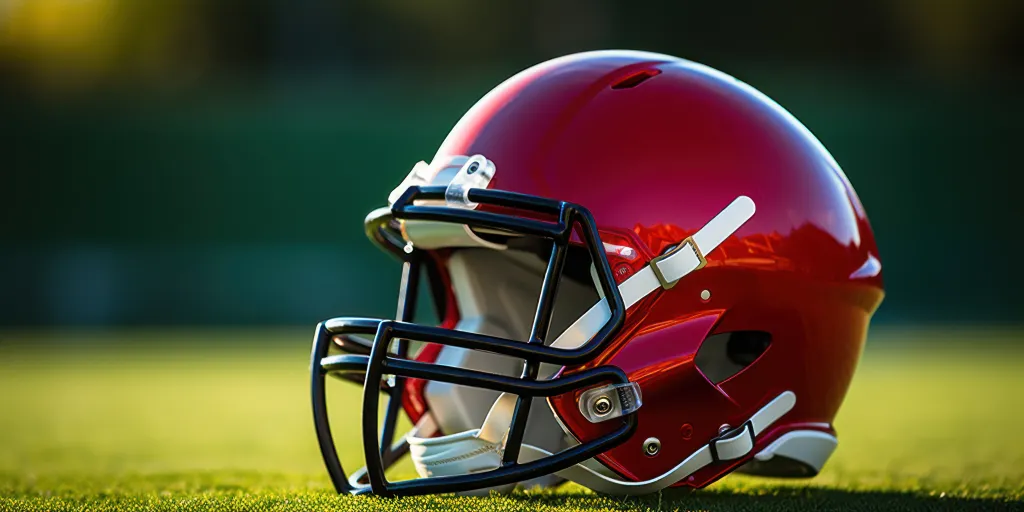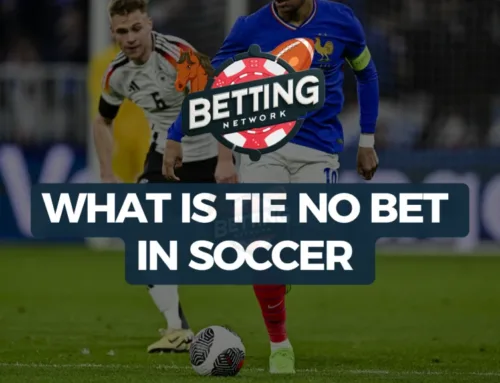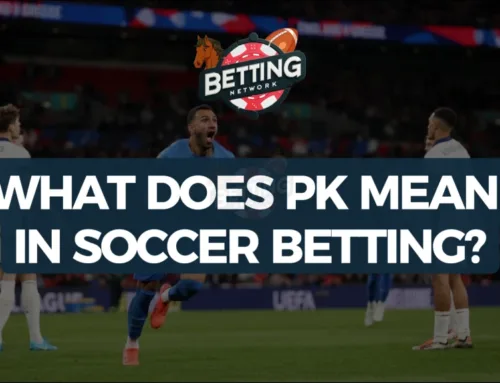An NFL survivor pool (also known as a knockout pool) requires you and your competitors to choose a team to win each week. Thing is: you can’t select the same team twice, so finding that balance between surviving the week and planning for the rest of the season becomes a real challenge.
Today I’ll teach you some survivor pool fundamentals and strategies that can outwit your friends or competitors alike!

Playing Against the Meta

At first, it seems like if you just blurt out a winner for each week without looking at its overall future potential, you’ll never be more than a survivor pool casual. Then you get eliminated early on because you saved your best teams for last.
My take is that everyone is planning on getting to the end of the season in small pools, where things usually end way earlier. The right NFL strategy advice will:
- Help you avoid elimination.
- Give you a massive edge over others in the final stages.
Let me share my favorite NFL Survivor Pool Strategy and then look at some of its key elements.
The “Keep It Simple” NFL Survivor Pool Strategy

The Keep it Simple NFL survivor pool strategy is all about keeping you alive week by week rather than overthinking future weeks. Most people realistically join small to medium-sized pools, so no need to obsess about end of the season plans. At least not until you’re near enough for that.
Basically, you’ll prioritize:
- Picking home teams for a consistent advantage.
- Using strong teams early to ensure survival.
- Avoiding tricky scenarios like division games or road games with early kickoffs.
- Taking full advantage of betting odds and situational factors, like injuries and rest.
Always Pick Home Teams When Possible
Prioritize picking teams playing at home, especially those comfortable in specific conditions like cold weather or domes (e.g., Saints in the Superdome, Packers at Lambeau Field). Don’t pick road teams unless you absolutely have to, and the stats show them as clear winners.
Use Strong Teams Early
Don’t try to “save” the best teams for later weeks. Pick strong teams as early as possible to survive the week. Any plan to save teams for future weeks becomes pointless if you lose early. Too many people are strategizing for end of the season, so play off-meta and knock them out!

3. Follow Teams Outperforming Expectations
Some teams will exceed expectations, while others will disappoint. As you notice trends, jump on teams that are overperforming, and steer clear of those underperforming. Loyalty will get you nowhere here, opportunism will!
4. Target Weak Opponents
Focus on picking teams that play against weaker, bottom-tier teams. Historically bad teams, such as those with records below 3-13, are reliable targets to pick against. No mercy!
5. Pay Attention to Vegas Odds
Big emphasis on “pay attention”, and not blindly follow. Don’t take Vegas odds as gospel, just notice that teams favored by 7+ points are generally safer picks.
6. Apply NFL Betting Strategy Fundamentals
Taking a page from a successful NFL betting strategy is not a bad idea. Factors such as:
- Travel: West coast teams traveling east for early games often struggle.
- Division Games: These are unpredictable and should generally be avoided.
- Injuries: Be cautious picking teams missing key players.
- Desperation: Watch out for teams on losing streaks, as they may be more desperate for a win.
- Rest Time: Teams with extra rest (bye weeks or Thursday games) often perform better.
Should all be a key part of your decision-making process every week. It can turn underdogs into clear winners, so do your due diligence, and you’ll outlast your peers!
Let’s look at the keys elements any strategy worth using should have.
Key Elements of Survivor Pool Strategy

Win Probability (W%)
Each team has an assigned win probability, also referred to as W%. It grabs betting odds and other metrics and simplifies it into a single number to describe how likely a team is to win their game.
A short-term strategy is just picking the team with the highest W% on each week, but what if you expect a drawn-out survivor pool?
If you’re thinking long-term, you’ll need to save stronger teams for future weeks, when their matchups are even better. Or, when their high W% can save you from an elimination. Personally, I like to play against the current meta, but to each their own.
Future Value of Teams
All NFL survivor pool strategies fiercely try to maximize each team’s value. Once you start balancing survival with long-term planning, you’re able to look past a team’s high W%, and instead think of how next week’s matchup might give you an even better return.
If, for example, Team A pretty much has it in the bag on Week 1, but has an even better matchup coming up in Week 6, you should definitely pick a different team in Week 1 and save a trump card for later. You don’t want to go into the later weeks of the season with low W% teams, do you?

Pick Percentage (P%)
Pick Percentage in an NFL survivor pool is how many people are expected to pick a team in a given week. This is where things get interesting. Think about it:
If too many people pick the same team, your odds of winning won’t really improve much if that team takes the win.
On the other hand, if a heavily picked team loses, then a large portion of your opponents will get eliminated, and you get a massive advantage overnight.
Picking teams with a lower P% is a calculated risk, but a risk nonetheless. You gotta balance W% and P% to maximize your chances of winning the entire pool, which tends to be a massive hurdle for casual players.
Using Survivor Pool Strategy Tools
Planning a whole season ahead is tough without tools that help you visualize what’s going on. Personally, I like Football Survivor because of its clean user interface and intuitive feel.
There’s also all sorts of Fantasy Football tools out there that will make your life easier, as well as other players that share their strategies and train of thoughts when it comes to picks. You’ll find these in Reddit.
Balancing Risk and Reward in Survivor Pools
So, is planning for long-term success the be-all and end-all of NFL survivor pool strategies? Well, not quite. Veterans that know they’re facing other veterans will try to off you in the first few weeks by playing against a long-term meta. So, you need to balance your choices at all time.
Generally speaking, taking a calculated risk by picking a less popular team with a slightly lower W% is where the money is at. It almost always provides big returns because they require superior insight to spot.
What you want to do is use expected value to assess your picks. That way, you can make smarter decisions. EV combines both W% and P% to calculate the optimal choice each week, helping you balance risk and reward effectively.

Balance EV (Expected Value)
Splitting picks increases your odds of surviving the week, but it’ll probably reduce the EV for each entry. Balancing between optimal, ideal picks and short-term survival is tough, but it’s the difference between shameful early elimination and long-term glory.
For example, if you have two entries and you pick Team A with one and Team B with the other, you decrease the risk of total elimination while still maximizing your odds of surviving. In some cases, splitting picks may not be the optimal strategy, especially if one team clearly has the highest EV.
Map Out the Season
Look, you only get to pick a team once, after that, it’s over. Making good picks is all about mapping out your entire season and identifying key weeks ahead of time. Key weeks are weeks where some teams will have favorable matches, and where they’ll offer the most value.
The larger the pool, the more likely it is to extend itself for the whole NFL season. Shorter pools don’t require you to plan for more than a few weeks ahead, so feel free to be bold.
Use an NFL Betting Strategy Logic
Teams that are missing their star player dramatically shift line odds. Weather conditions will also negatively impact teams that rely on passing plays, and the same logic applies to NFL survivor pool matchups.
These factors aren’t really part of W% calculations, but they’re part of that superior insight we were talking about earlier.
FAQs – NFL Survivor Pool Strategy
What is the best time to use high-value teams?
It’s best to save high-value teams (those with consistently favorable matchups) for later weeks, especially if you expect your pool to last the entire season. However, if you face a week where your remaining options have low win probabilities, it may be better to use a high-value team sooner to ensure survival.
Should I always pick the highest win probability team?
No, you should consider the team’s future value and how many other participants are likely to pick the same team (pick percentage). A balanced approach, using expected value (EV) to calculate the optimal choice, is more effective than simply choosing the team with the highest win probability.
Keep in mind, that if enough people follow this simple logic, then countering becomes the new meta.
How can I improve my odds with multiple entries?
Using multiple entries allows you to diversify your picks, reducing the risk of being eliminated. You can split your picks between different teams, increasing the likelihood that at least one of your entries survives each week. Be mindful, though, that this strategy may reduce the expected value of each individual entry.
Does home field advantage matter in survivor pools?
Yes, home field advantage can improve a team’s win probability, but it’s just one of many factors to consider. Always weigh home field advantage against other elements like injuries, weather, and the strength of the opposing team.
How do I deal with unexpected injuries or weather conditions?
Stay updated on injury reports and weather forecasts up until game day. If you’re concerned about last-minute changes, consider picking teams with greater depth or whose game plans are less affected by weather.
An NFL survivor pool (also known as a knockout pool) requires you and your competitors to choose a team to win each week. Thing is: you can’t select the same team twice, so finding that balance between surviving the week and planning for the rest of the season becomes a real challenge.
Today I’ll teach you some survivor pool fundamentals and strategies that can outwit your friends or competitors alike!

Playing Against the Meta

At first, it seems like if you just blurt out a winner for each week without looking at its overall future potential, you’ll never be more than a survivor pool casual. Then you get eliminated early on because you saved your best teams for last.
My take is that everyone is planning on getting to the end of the season in small pools, where things usually end way earlier. The right NFL strategy advice will:
- Help you avoid elimination.
- Give you a massive edge over others in the final stages.
Let me share my favorite NFL Survivor Pool Strategy and then look at some of its key elements.
The “Keep It Simple” NFL Survivor Pool Strategy

The Keep it Simple NFL survivor pool strategy is all about keeping you alive week by week rather than overthinking future weeks. Most people realistically join small to medium-sized pools, so no need to obsess about end of the season plans. At least not until you’re near enough for that.
Basically, you’ll prioritize:
- Picking home teams for a consistent advantage.
- Using strong teams early to ensure survival.
- Avoiding tricky scenarios like division games or road games with early kickoffs.
- Taking full advantage of betting odds and situational factors, like injuries and rest.
Always Pick Home Teams When Possible
Prioritize picking teams playing at home, especially those comfortable in specific conditions like cold weather or domes (e.g., Saints in the Superdome, Packers at Lambeau Field). Don’t pick road teams unless you absolutely have to, and the stats show them as clear winners.
Use Strong Teams Early
Don’t try to “save” the best teams for later weeks. Pick strong teams as early as possible to survive the week. Any plan to save teams for future weeks becomes pointless if you lose early. Too many people are strategizing for end of the season, so play off-meta and knock them out!

3. Follow Teams Outperforming Expectations
Some teams will exceed expectations, while others will disappoint. As you notice trends, jump on teams that are overperforming, and steer clear of those underperforming. Loyalty will get you nowhere here, opportunism will!
4. Target Weak Opponents
Focus on picking teams that play against weaker, bottom-tier teams. Historically bad teams, such as those with records below 3-13, are reliable targets to pick against. No mercy!
5. Pay Attention to Vegas Odds
Big emphasis on “pay attention”, and not blindly follow. Don’t take Vegas odds as gospel, just notice that teams favored by 7+ points are generally safer picks.
6. Apply NFL Betting Strategy Fundamentals
Taking a page from a successful NFL betting strategy is not a bad idea. Factors such as:
- Travel: West coast teams traveling east for early games often struggle.
- Division Games: These are unpredictable and should generally be avoided.
- Injuries: Be cautious picking teams missing key players.
- Desperation: Watch out for teams on losing streaks, as they may be more desperate for a win.
- Rest Time: Teams with extra rest (bye weeks or Thursday games) often perform better.
Should all be a key part of your decision-making process every week. It can turn underdogs into clear winners, so do your due diligence, and you’ll outlast your peers!
Let’s look at the keys elements any strategy worth using should have.
Key Elements of Survivor Pool Strategy

Win Probability (W%)
Each team has an assigned win probability, also referred to as W%. It grabs betting odds and other metrics and simplifies it into a single number to describe how likely a team is to win their game.
A short-term strategy is just picking the team with the highest W% on each week, but what if you expect a drawn-out survivor pool?
If you’re thinking long-term, you’ll need to save stronger teams for future weeks, when their matchups are even better. Or, when their high W% can save you from an elimination. Personally, I like to play against the current meta, but to each their own.
Future Value of Teams
All NFL survivor pool strategies fiercely try to maximize each team’s value. Once you start balancing survival with long-term planning, you’re able to look past a team’s high W%, and instead think of how next week’s matchup might give you an even better return.
If, for example, Team A pretty much has it in the bag on Week 1, but has an even better matchup coming up in Week 6, you should definitely pick a different team in Week 1 and save a trump card for later. You don’t want to go into the later weeks of the season with low W% teams, do you?

Pick Percentage (P%)
Pick Percentage in an NFL survivor pool is how many people are expected to pick a team in a given week. This is where things get interesting. Think about it:
If too many people pick the same team, your odds of winning won’t really improve much if that team takes the win.
On the other hand, if a heavily picked team loses, then a large portion of your opponents will get eliminated, and you get a massive advantage overnight.
Picking teams with a lower P% is a calculated risk, but a risk nonetheless. You gotta balance W% and P% to maximize your chances of winning the entire pool, which tends to be a massive hurdle for casual players.
Using Survivor Pool Strategy Tools
Planning a whole season ahead is tough without tools that help you visualize what’s going on. Personally, I like Football Survivor because of its clean user interface and intuitive feel.
There’s also all sorts of Fantasy Football tools out there that will make your life easier, as well as other players that share their strategies and train of thoughts when it comes to picks. You’ll find these in Reddit.
Balancing Risk and Reward in Survivor Pools
So, is planning for long-term success the be-all and end-all of NFL survivor pool strategies? Well, not quite. Veterans that know they’re facing other veterans will try to off you in the first few weeks by playing against a long-term meta. So, you need to balance your choices at all time.
Generally speaking, taking a calculated risk by picking a less popular team with a slightly lower W% is where the money is at. It almost always provides big returns because they require superior insight to spot.
What you want to do is use expected value to assess your picks. That way, you can make smarter decisions. EV combines both W% and P% to calculate the optimal choice each week, helping you balance risk and reward effectively.

Balance EV (Expected Value)
Splitting picks increases your odds of surviving the week, but it’ll probably reduce the EV for each entry. Balancing between optimal, ideal picks and short-term survival is tough, but it’s the difference between shameful early elimination and long-term glory.
For example, if you have two entries and you pick Team A with one and Team B with the other, you decrease the risk of total elimination while still maximizing your odds of surviving. In some cases, splitting picks may not be the optimal strategy, especially if one team clearly has the highest EV.
Map Out the Season
Look, you only get to pick a team once, after that, it’s over. Making good picks is all about mapping out your entire season and identifying key weeks ahead of time. Key weeks are weeks where some teams will have favorable matches, and where they’ll offer the most value.
The larger the pool, the more likely it is to extend itself for the whole NFL season. Shorter pools don’t require you to plan for more than a few weeks ahead, so feel free to be bold.
Use an NFL Betting Strategy Logic
Teams that are missing their star player dramatically shift line odds. Weather conditions will also negatively impact teams that rely on passing plays, and the same logic applies to NFL survivor pool matchups.
These factors aren’t really part of W% calculations, but they’re part of that superior insight we were talking about earlier.
FAQs – NFL Survivor Pool Strategy
What is the best time to use high-value teams?
It’s best to save high-value teams (those with consistently favorable matchups) for later weeks, especially if you expect your pool to last the entire season. However, if you face a week where your remaining options have low win probabilities, it may be better to use a high-value team sooner to ensure survival.
Should I always pick the highest win probability team?
No, you should consider the team’s future value and how many other participants are likely to pick the same team (pick percentage). A balanced approach, using expected value (EV) to calculate the optimal choice, is more effective than simply choosing the team with the highest win probability.
Keep in mind, that if enough people follow this simple logic, then countering becomes the new meta.
How can I improve my odds with multiple entries?
Using multiple entries allows you to diversify your picks, reducing the risk of being eliminated. You can split your picks between different teams, increasing the likelihood that at least one of your entries survives each week. Be mindful, though, that this strategy may reduce the expected value of each individual entry.
Does home field advantage matter in survivor pools?
Yes, home field advantage can improve a team’s win probability, but it’s just one of many factors to consider. Always weigh home field advantage against other elements like injuries, weather, and the strength of the opposing team.
How do I deal with unexpected injuries or weather conditions?
Stay updated on injury reports and weather forecasts up until game day. If you’re concerned about last-minute changes, consider picking teams with greater depth or whose game plans are less affected by weather.
An NFL survivor pool (also known as a knockout pool) requires you and your competitors to choose a team to win each week. Thing is: you can’t select the same team twice, so finding that balance between surviving the week and planning for the rest of the season becomes a real challenge.
Today I’ll teach you some survivor pool fundamentals and strategies that can outwit your friends or competitors alike!

Playing Against the Meta

At first, it seems like if you just blurt out a winner for each week without looking at its overall future potential, you’ll never be more than a survivor pool casual. Then you get eliminated early on because you saved your best teams for last.
My take is that everyone is planning on getting to the end of the season in small pools, where things usually end way earlier. The right NFL strategy advice will:
- Help you avoid elimination.
- Give you a massive edge over others in the final stages.
Let me share my favorite NFL Survivor Pool Strategy and then look at some of its key elements.
The “Keep It Simple” NFL Survivor Pool Strategy

The Keep it Simple NFL survivor pool strategy is all about keeping you alive week by week rather than overthinking future weeks. Most people realistically join small to medium-sized pools, so no need to obsess about end of the season plans. At least not until you’re near enough for that.
Basically, you’ll prioritize:
- Picking home teams for a consistent advantage.
- Using strong teams early to ensure survival.
- Avoiding tricky scenarios like division games or road games with early kickoffs.
- Taking full advantage of betting odds and situational factors, like injuries and rest.
Always Pick Home Teams When Possible
Prioritize picking teams playing at home, especially those comfortable in specific conditions like cold weather or domes (e.g., Saints in the Superdome, Packers at Lambeau Field). Don’t pick road teams unless you absolutely have to, and the stats show them as clear winners.
Use Strong Teams Early
Don’t try to “save” the best teams for later weeks. Pick strong teams as early as possible to survive the week. Any plan to save teams for future weeks becomes pointless if you lose early. Too many people are strategizing for end of the season, so play off-meta and knock them out!

3. Follow Teams Outperforming Expectations
Some teams will exceed expectations, while others will disappoint. As you notice trends, jump on teams that are overperforming, and steer clear of those underperforming. Loyalty will get you nowhere here, opportunism will!
4. Target Weak Opponents
Focus on picking teams that play against weaker, bottom-tier teams. Historically bad teams, such as those with records below 3-13, are reliable targets to pick against. No mercy!
5. Pay Attention to Vegas Odds
Big emphasis on “pay attention”, and not blindly follow. Don’t take Vegas odds as gospel, just notice that teams favored by 7+ points are generally safer picks.
6. Apply NFL Betting Strategy Fundamentals
Taking a page from a successful NFL betting strategy is not a bad idea. Factors such as:
- Travel: West coast teams traveling east for early games often struggle.
- Division Games: These are unpredictable and should generally be avoided.
- Injuries: Be cautious picking teams missing key players.
- Desperation: Watch out for teams on losing streaks, as they may be more desperate for a win.
- Rest Time: Teams with extra rest (bye weeks or Thursday games) often perform better.
Should all be a key part of your decision-making process every week. It can turn underdogs into clear winners, so do your due diligence, and you’ll outlast your peers!
Let’s look at the keys elements any strategy worth using should have.
Key Elements of Survivor Pool Strategy

Win Probability (W%)
Each team has an assigned win probability, also referred to as W%. It grabs betting odds and other metrics and simplifies it into a single number to describe how likely a team is to win their game.
A short-term strategy is just picking the team with the highest W% on each week, but what if you expect a drawn-out survivor pool?
If you’re thinking long-term, you’ll need to save stronger teams for future weeks, when their matchups are even better. Or, when their high W% can save you from an elimination. Personally, I like to play against the current meta, but to each their own.
Future Value of Teams
All NFL survivor pool strategies fiercely try to maximize each team’s value. Once you start balancing survival with long-term planning, you’re able to look past a team’s high W%, and instead think of how next week’s matchup might give you an even better return.
If, for example, Team A pretty much has it in the bag on Week 1, but has an even better matchup coming up in Week 6, you should definitely pick a different team in Week 1 and save a trump card for later. You don’t want to go into the later weeks of the season with low W% teams, do you?

Pick Percentage (P%)
Pick Percentage in an NFL survivor pool is how many people are expected to pick a team in a given week. This is where things get interesting. Think about it:
If too many people pick the same team, your odds of winning won’t really improve much if that team takes the win.
On the other hand, if a heavily picked team loses, then a large portion of your opponents will get eliminated, and you get a massive advantage overnight.
Picking teams with a lower P% is a calculated risk, but a risk nonetheless. You gotta balance W% and P% to maximize your chances of winning the entire pool, which tends to be a massive hurdle for casual players.
Using Survivor Pool Strategy Tools
Planning a whole season ahead is tough without tools that help you visualize what’s going on. Personally, I like Football Survivor because of its clean user interface and intuitive feel.
There’s also all sorts of Fantasy Football tools out there that will make your life easier, as well as other players that share their strategies and train of thoughts when it comes to picks. You’ll find these in Reddit.
Balancing Risk and Reward in Survivor Pools
So, is planning for long-term success the be-all and end-all of NFL survivor pool strategies? Well, not quite. Veterans that know they’re facing other veterans will try to off you in the first few weeks by playing against a long-term meta. So, you need to balance your choices at all time.
Generally speaking, taking a calculated risk by picking a less popular team with a slightly lower W% is where the money is at. It almost always provides big returns because they require superior insight to spot.
What you want to do is use expected value to assess your picks. That way, you can make smarter decisions. EV combines both W% and P% to calculate the optimal choice each week, helping you balance risk and reward effectively.

Balance EV (Expected Value)
Splitting picks increases your odds of surviving the week, but it’ll probably reduce the EV for each entry. Balancing between optimal, ideal picks and short-term survival is tough, but it’s the difference between shameful early elimination and long-term glory.
For example, if you have two entries and you pick Team A with one and Team B with the other, you decrease the risk of total elimination while still maximizing your odds of surviving. In some cases, splitting picks may not be the optimal strategy, especially if one team clearly has the highest EV.
Map Out the Season
Look, you only get to pick a team once, after that, it’s over. Making good picks is all about mapping out your entire season and identifying key weeks ahead of time. Key weeks are weeks where some teams will have favorable matches, and where they’ll offer the most value.
The larger the pool, the more likely it is to extend itself for the whole NFL season. Shorter pools don’t require you to plan for more than a few weeks ahead, so feel free to be bold.
Use an NFL Betting Strategy Logic
Teams that are missing their star player dramatically shift line odds. Weather conditions will also negatively impact teams that rely on passing plays, and the same logic applies to NFL survivor pool matchups.
These factors aren’t really part of W% calculations, but they’re part of that superior insight we were talking about earlier.
FAQs – NFL Survivor Pool Strategy
What is the best time to use high-value teams?
It’s best to save high-value teams (those with consistently favorable matchups) for later weeks, especially if you expect your pool to last the entire season. However, if you face a week where your remaining options have low win probabilities, it may be better to use a high-value team sooner to ensure survival.
Should I always pick the highest win probability team?
No, you should consider the team’s future value and how many other participants are likely to pick the same team (pick percentage). A balanced approach, using expected value (EV) to calculate the optimal choice, is more effective than simply choosing the team with the highest win probability.
Keep in mind, that if enough people follow this simple logic, then countering becomes the new meta.
How can I improve my odds with multiple entries?
Using multiple entries allows you to diversify your picks, reducing the risk of being eliminated. You can split your picks between different teams, increasing the likelihood that at least one of your entries survives each week. Be mindful, though, that this strategy may reduce the expected value of each individual entry.
Does home field advantage matter in survivor pools?
Yes, home field advantage can improve a team’s win probability, but it’s just one of many factors to consider. Always weigh home field advantage against other elements like injuries, weather, and the strength of the opposing team.
How do I deal with unexpected injuries or weather conditions?
Stay updated on injury reports and weather forecasts up until game day. If you’re concerned about last-minute changes, consider picking teams with greater depth or whose game plans are less affected by weather.
An NFL survivor pool (also known as a knockout pool) requires you and your competitors to choose a team to win each week. Thing is: you can’t select the same team twice, so finding that balance between surviving the week and planning for the rest of the season becomes a real challenge.
Today I’ll teach you some survivor pool fundamentals and strategies that can outwit your friends or competitors alike!

Playing Against the Meta

At first, it seems like if you just blurt out a winner for each week without looking at its overall future potential, you’ll never be more than a survivor pool casual. Then you get eliminated early on because you saved your best teams for last.
My take is that everyone is planning on getting to the end of the season in small pools, where things usually end way earlier. The right NFL strategy advice will:
- Help you avoid elimination.
- Give you a massive edge over others in the final stages.
Let me share my favorite NFL Survivor Pool Strategy and then look at some of its key elements.
The “Keep It Simple” NFL Survivor Pool Strategy

The Keep it Simple NFL survivor pool strategy is all about keeping you alive week by week rather than overthinking future weeks. Most people realistically join small to medium-sized pools, so no need to obsess about end of the season plans. At least not until you’re near enough for that.
Basically, you’ll prioritize:
- Picking home teams for a consistent advantage.
- Using strong teams early to ensure survival.
- Avoiding tricky scenarios like division games or road games with early kickoffs.
- Taking full advantage of betting odds and situational factors, like injuries and rest.
Always Pick Home Teams When Possible
Prioritize picking teams playing at home, especially those comfortable in specific conditions like cold weather or domes (e.g., Saints in the Superdome, Packers at Lambeau Field). Don’t pick road teams unless you absolutely have to, and the stats show them as clear winners.
Use Strong Teams Early
Don’t try to “save” the best teams for later weeks. Pick strong teams as early as possible to survive the week. Any plan to save teams for future weeks becomes pointless if you lose early. Too many people are strategizing for end of the season, so play off-meta and knock them out!

3. Follow Teams Outperforming Expectations
Some teams will exceed expectations, while others will disappoint. As you notice trends, jump on teams that are overperforming, and steer clear of those underperforming. Loyalty will get you nowhere here, opportunism will!
4. Target Weak Opponents
Focus on picking teams that play against weaker, bottom-tier teams. Historically bad teams, such as those with records below 3-13, are reliable targets to pick against. No mercy!
5. Pay Attention to Vegas Odds
Big emphasis on “pay attention”, and not blindly follow. Don’t take Vegas odds as gospel, just notice that teams favored by 7+ points are generally safer picks.
6. Apply NFL Betting Strategy Fundamentals
Taking a page from a successful NFL betting strategy is not a bad idea. Factors such as:
- Travel: West coast teams traveling east for early games often struggle.
- Division Games: These are unpredictable and should generally be avoided.
- Injuries: Be cautious picking teams missing key players.
- Desperation: Watch out for teams on losing streaks, as they may be more desperate for a win.
- Rest Time: Teams with extra rest (bye weeks or Thursday games) often perform better.
Should all be a key part of your decision-making process every week. It can turn underdogs into clear winners, so do your due diligence, and you’ll outlast your peers!
Let’s look at the keys elements any strategy worth using should have.
Key Elements of Survivor Pool Strategy

Win Probability (W%)
Each team has an assigned win probability, also referred to as W%. It grabs betting odds and other metrics and simplifies it into a single number to describe how likely a team is to win their game.
A short-term strategy is just picking the team with the highest W% on each week, but what if you expect a drawn-out survivor pool?
If you’re thinking long-term, you’ll need to save stronger teams for future weeks, when their matchups are even better. Or, when their high W% can save you from an elimination. Personally, I like to play against the current meta, but to each their own.
Future Value of Teams
All NFL survivor pool strategies fiercely try to maximize each team’s value. Once you start balancing survival with long-term planning, you’re able to look past a team’s high W%, and instead think of how next week’s matchup might give you an even better return.
If, for example, Team A pretty much has it in the bag on Week 1, but has an even better matchup coming up in Week 6, you should definitely pick a different team in Week 1 and save a trump card for later. You don’t want to go into the later weeks of the season with low W% teams, do you?

Pick Percentage (P%)
Pick Percentage in an NFL survivor pool is how many people are expected to pick a team in a given week. This is where things get interesting. Think about it:
If too many people pick the same team, your odds of winning won’t really improve much if that team takes the win.
On the other hand, if a heavily picked team loses, then a large portion of your opponents will get eliminated, and you get a massive advantage overnight.
Picking teams with a lower P% is a calculated risk, but a risk nonetheless. You gotta balance W% and P% to maximize your chances of winning the entire pool, which tends to be a massive hurdle for casual players.
Using Survivor Pool Strategy Tools
Planning a whole season ahead is tough without tools that help you visualize what’s going on. Personally, I like Football Survivor because of its clean user interface and intuitive feel.
There’s also all sorts of Fantasy Football tools out there that will make your life easier, as well as other players that share their strategies and train of thoughts when it comes to picks. You’ll find these in Reddit.
Balancing Risk and Reward in Survivor Pools
So, is planning for long-term success the be-all and end-all of NFL survivor pool strategies? Well, not quite. Veterans that know they’re facing other veterans will try to off you in the first few weeks by playing against a long-term meta. So, you need to balance your choices at all time.
Generally speaking, taking a calculated risk by picking a less popular team with a slightly lower W% is where the money is at. It almost always provides big returns because they require superior insight to spot.
What you want to do is use expected value to assess your picks. That way, you can make smarter decisions. EV combines both W% and P% to calculate the optimal choice each week, helping you balance risk and reward effectively.

Balance EV (Expected Value)
Splitting picks increases your odds of surviving the week, but it’ll probably reduce the EV for each entry. Balancing between optimal, ideal picks and short-term survival is tough, but it’s the difference between shameful early elimination and long-term glory.
For example, if you have two entries and you pick Team A with one and Team B with the other, you decrease the risk of total elimination while still maximizing your odds of surviving. In some cases, splitting picks may not be the optimal strategy, especially if one team clearly has the highest EV.
Map Out the Season
Look, you only get to pick a team once, after that, it’s over. Making good picks is all about mapping out your entire season and identifying key weeks ahead of time. Key weeks are weeks where some teams will have favorable matches, and where they’ll offer the most value.
The larger the pool, the more likely it is to extend itself for the whole NFL season. Shorter pools don’t require you to plan for more than a few weeks ahead, so feel free to be bold.
Use an NFL Betting Strategy Logic
Teams that are missing their star player dramatically shift line odds. Weather conditions will also negatively impact teams that rely on passing plays, and the same logic applies to NFL survivor pool matchups.
These factors aren’t really part of W% calculations, but they’re part of that superior insight we were talking about earlier.
FAQs – NFL Survivor Pool Strategy
What is the best time to use high-value teams?
It’s best to save high-value teams (those with consistently favorable matchups) for later weeks, especially if you expect your pool to last the entire season. However, if you face a week where your remaining options have low win probabilities, it may be better to use a high-value team sooner to ensure survival.
Should I always pick the highest win probability team?
No, you should consider the team’s future value and how many other participants are likely to pick the same team (pick percentage). A balanced approach, using expected value (EV) to calculate the optimal choice, is more effective than simply choosing the team with the highest win probability.
Keep in mind, that if enough people follow this simple logic, then countering becomes the new meta.
How can I improve my odds with multiple entries?
Using multiple entries allows you to diversify your picks, reducing the risk of being eliminated. You can split your picks between different teams, increasing the likelihood that at least one of your entries survives each week. Be mindful, though, that this strategy may reduce the expected value of each individual entry.
Does home field advantage matter in survivor pools?
Yes, home field advantage can improve a team’s win probability, but it’s just one of many factors to consider. Always weigh home field advantage against other elements like injuries, weather, and the strength of the opposing team.
How do I deal with unexpected injuries or weather conditions?
Stay updated on injury reports and weather forecasts up until game day. If you’re concerned about last-minute changes, consider picking teams with greater depth or whose game plans are less affected by weather.









